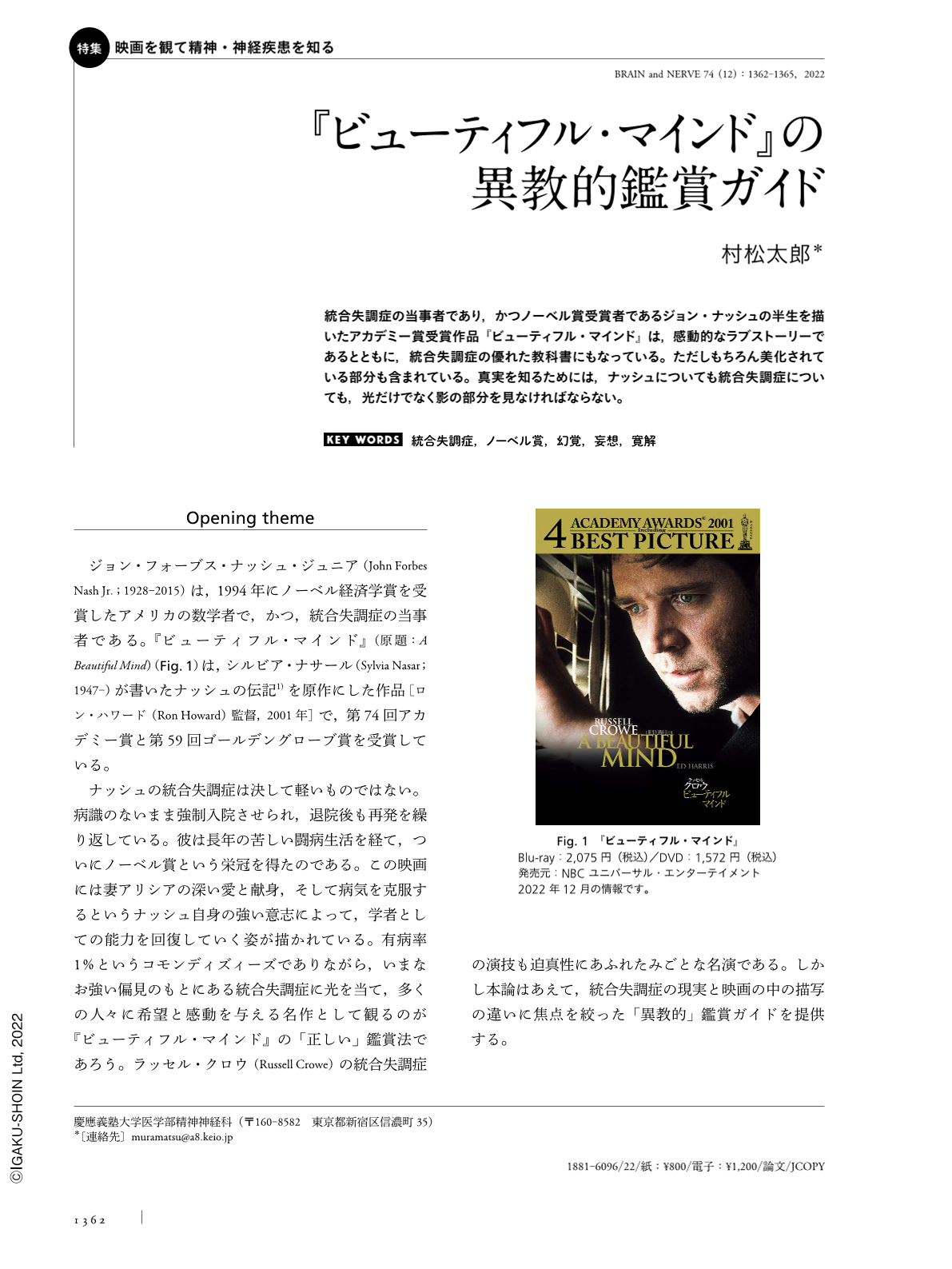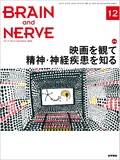Japanese
English
特集 映画を観て精神・神経疾患を知る
『ビューティフル・マインド』の異教的鑑賞ガイド
A Heretic Appreciation Guide to A Beautiful Mind
村松 太郎
1
Taro Muramatsu
1
1慶應義塾大学医学部精神神経科
1Department of Neuropsychiatry, School of Medicine, Keio University
キーワード:
統合失調症
,
ノーベル賞
,
幻覚
,
妄想
,
寛解
,
schizophrenia
,
Nobel Prize
,
hallucination
,
delusion
,
remission
Keyword:
統合失調症
,
ノーベル賞
,
幻覚
,
妄想
,
寛解
,
schizophrenia
,
Nobel Prize
,
hallucination
,
delusion
,
remission
pp.1362-1365
発行日 2022年12月1日
Published Date 2022/12/1
DOI https://doi.org/10.11477/mf.1416202249
- 有料閲覧
- Abstract 文献概要
- 1ページ目 Look Inside
- 参考文献 Reference
統合失調症の当事者であり,かつノーベル賞受賞者であるジョン・ナッシュの半生を描いたアカデミー賞受賞作品『ビューティフル・マインド』は,感動的なラブストーリーであるとともに,統合失調症の優れた教科書にもなっている。ただしもちろん美化されている部分も含まれている。真実を知るためには,ナッシュについても統合失調症についても,光だけでなく影の部分を見なければならない。
Abstract
Based on the life of a schizophrenia patient and Nobel laureate, John Nash, the Academy Award-winning film A Beautiful Mind is both a moving love story and an excellent introduction to schizophrenia. However, of course, some parts have been beautified. To know the truth, we need to consider the shadows as well as the light, about both Nash and schizophrenia.

Copyright © 2022, Igaku-Shoin Ltd. All rights reserved.


